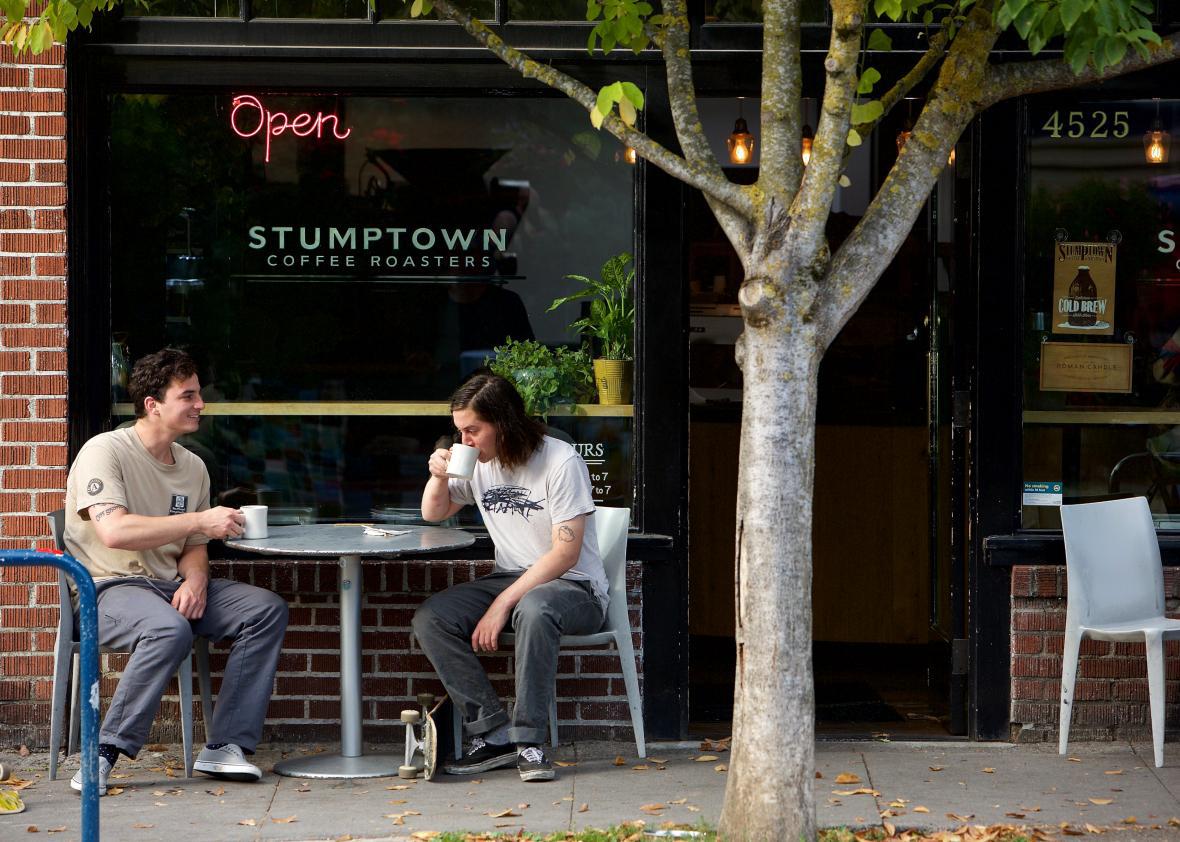Once upon a time, all coffee in America was swill, and no one cared because they didn’t know any better. Oh, sure, some sophisticates were aware that there was far better caffè available elsewhere in the world, but conventional wisdom held that it wouldn’t sell stateside. Americans preferred their caffeine fast, cheap, and sans frills.
One day in 1966, a Dutch immigrant named Alfred Peet decided he’d had enough, and he opened his own little shop on the corner of Walnut and Vine streets in Berkeley, California, to show the Yanks what they’d been missing. His rich, flavorful dark roasts surprised and delighted those liberal-minded Berkeleyites, and he soon expanded throughout the Bay Area. Among those who had their eyes opened by Peet’s bold style were three young men who moved to Seattle and founded a little shop of their own. They called it Starbucks.
Half a century later, American coffee has progressed—and, some might say, Peet’s and Starbucks have regressed—to the point where Peet’s and Starbucks have become the generic swill. Predictably, a new generation—the “third wave”—of small, independent roasters has arisen to quench the cognoscenti’s thirst for something different.
It should surprise no one, then, that some of the most successful members of this new crop are following a similar path to mainstream popularity. I wrote last year about Bay Area–based Blue Bottle’s venture capital funding and impending nationwide expansion.
Today it’s Portlandia’s Stumptown Coffee Roasters that is cashing in. It has been acquired by none other than Peet’s Coffee & Tea, which today is owned by JAB Holding Co., a secretive German concern that also controls Caribou Coffee and other mass-market consumer brands. Stumptown aficionados were predictably frothed about it:
But hold the froth for a moment. Both Peet’s and Stumptown say the two brands will continue to be run independently, with neither hawking the other’s beans. That makes sense, because Stumptown’s value lies in its reputation as an alternative to the likes of Peet’s. To buy it and then make it more like Peet’s would be self-defeating. More likely, as the Awl’s Matt Buchanan observes, the path to big profits is to put Stumptown’s bottled cold brew in groceries and convenience stores the world over. Sure, the scale might dilute the quality a bit over time. But Stumptown’s bottled cold press was designed from the start to be produced and sold in large quantities. If anything, an infusion of cash from the new ownership should make it easier to maintain quality while ramping up production.
Besides, what some of the Peet’s critics don’t seem to realize is that Stumptown had already gone quietly corporate. Its majority owner since 2011 has been the private equity firm TSG.
There’s irony here, although it isn’t the kind that would fit neatly on a T-shirt. The irony is that a lot of the people now decrying Stumptown’s sale would never have had the chance to try it if TSG hadn’t pumped money into its expansion four years ago.
If nothing else, those crying into their mugs at Stumptown’s sale can console themselves with the knowledge that the coffee business is cyclical: What’s artisanal today will be corporate tomorrow, clearing the field for the next Peet’s or Stumptown to take its place.
Previously in Slate:
